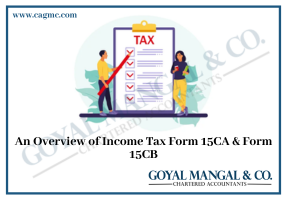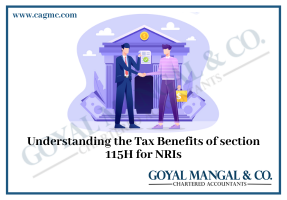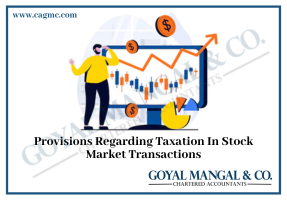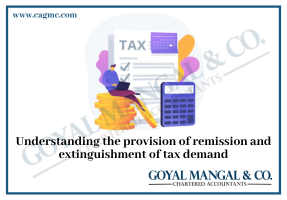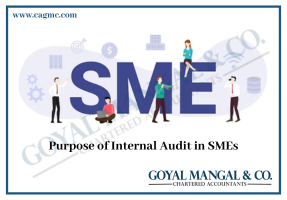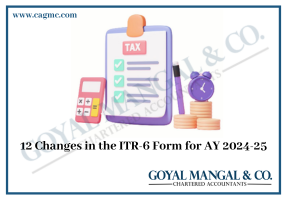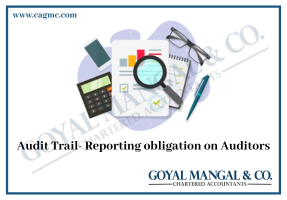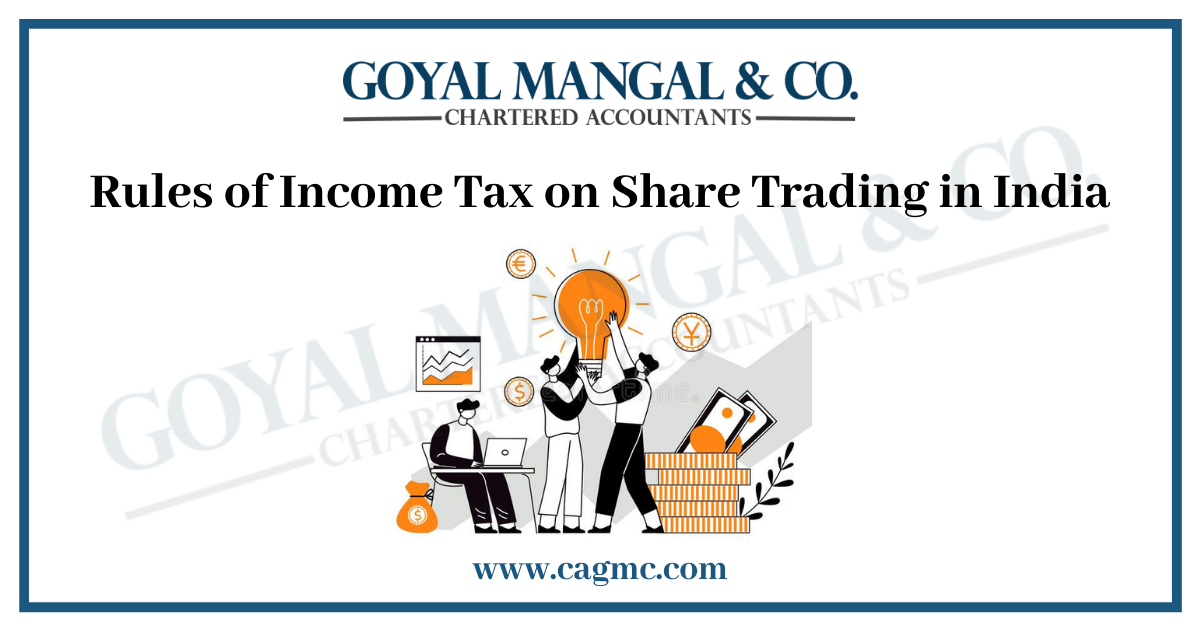
There are 5 heads of income under which income is computed and tax is levied thereon as per applicable provision. These 5 heads of income are salaries, House Property, PGBP, Capital Gains and Other Sources. Today we will discuss a part of Income taxable under the head Capital Gains. Under this head, Gains arising on transfer of capital asset is charged to tax. Capital Gains are further divided into Short Term Capital Gains and Long Term Capital Gains. In this article we will discuss about Income tax on shares trading, i.e. income arising out of sale and purchase of shares. Share trading is done by all strata of people as it can be done from the comfort of home.
What is Capital Gain/Capital Loss for Income tax on share trading?
To calculate Income Tax on stock trading first we need to calculate the amount on which tax is to be levied. Just like any other transaction, capital gain/loss is the comparison between sale and purchase price i.e.

Calculation of value of capital gain
| Particulars | Rs. |
| Full Value of Consideration (i.e., Sale Value of Asset) | XXXX |
| Less: – Any cost incurred for sale of such assets (e.g. brokerage, commission etc.) | (XXXX) |
| Net Sales Consideration | XXXX |
| Less :- Cost of acquisition | (XXXX) |
| Value of Capital Gain/Loss | XXXX |
Now, we will discuss what is a Short Term and Long Term Asset one by one.
Meaning of Long Term and Short Term Asset
- Short Term Asset– In case of shares following will be treated as the period of holding to consider it as a short term capital asset
- 12 Months- In case of shares (equity or preference) listed on a recognized stock exchange, units of equity oriented mutual fund, listed securities like Debentures and Government Securities, Units of UTI and zero coupon bonds.
- 24 Months- In case of unlisted shares.
- Long Term Asset– Any asset held for more period than specified above, will be treated as a Long Term Asset.
Meaning of Short Term and Long Term Capital Gain
- Short Term Capital Gain– Capital gain arising out of sale of Short- Term Asset is called Short Term Capital Gain.
-
- The Short term capital gain is taxable at 15% where the shares/ units of equity oriented mutual funds are sold through a recognized stock exchange and STT is paid on the sale of such shares.
- In case of unlisted shares, it will be treated as normal capital gain and will be taxed at normal rates as applicable to income for that particular year.
- Long Term Capital Gain– Capital gain arising out of sale of Long- Term Asset is called Long Term Capital Gain. Till Finance Act, 2018 the long term capital gain were exempt from tax. However w.e.f 01.04.2018,
-
- In case of listed securities, if the amount of such gain exceeds Rs. 1, 00,000/- , rate of tax will be 10% (no indexation benefit).
- In case of unlisted securities, the rate of tax will be 10% ( without indexation benefit) and 20% (with indexation benefit)
Cost of Acquisition in case of LTCG
For the securities purchased before 01.02.2018, the cost of acquisition will be higher of the two:-
- Actual Cost of Acquisition
OR
- Lower of
- FMV of such shares as on 31.01.2018**( highest price quoted on that date)
- Actual sales consideration on its transfer.
Note:
- Where stock not listed on 31.01.2018, NAV will be taken as FMV.
- Where stock not listed on 31.01.2018, but listed on the date of transfer, Cost of acquisition will be increased with CI Index for FY 2017-2018 and will be taken as FMV.
Treatment of Long Term/ Short Term Capital Loss
We will discuss in detail about set-off and carry forward of losses arising under the Capital Gains,
- Short Term Capital Loss:
-
- As per the provisions of income tax act the Short Term Loss can be carried forward for 8 subsequent years.
- Such loss can be adjusted against any long term/ short term capital gain during these years.
- Carry forward of losses is allowed only if ITR is filed within due date.
- Long Term Capital Loss:
-
- Before Finance Act, 2018 Long Term Capital loss arising out of sales of shares etc. was irrelevant for income tax purpose.
- As the gains arising from sale of shares/ securities was exempt, losses were also not allowed to be carried forward/set-off.
- However, after enactment of Finance Act, 2018 the tax rate of 10% has been levied on the sale of listed securities.
- It was also clarified that Long Term loss also will be treated as per provisions of law as applicable.
- That is it will be allowed to carry forward and set-off against any long term capital gain for 8 subsequent years.
Adjustment to Basic Exemption Limit
A person is supposed to pay tax only if his income during the year crosses the basic exemption limit, there may be cases where income of the person before adding capital gain income is less than the basic exemption limit. Now, as the capital gain is taxable at flat rates irrespective of income slab, the person has to pay more tax.
To overcome this problem, it was provided in the law itself that
- The amount of capital gains (short term and long term) can be adjusted against the basic exemption imit.
- The amount after the adjustment will be taxed at rates applicable for capital gains.
- To avoid tax evasion by misuse of this rule, it has been included that this adjustment will be done only after the adjustment of other income.
- This option is available only to resident Individual/HUF.
How can you claim deductions under Chapter VI-A against Capital Gains?
- In case of Long Term Capital Gains- No deductions are admissible from LTCG.
Is share trading income a Business Income?
This has been an ongoing debate for quite a while, that whether income from share trading can be treated as business income.
People who are significantly involved in stock trading prefer to treat it as a business income as they get to reduce expenses incurred in doing the business. However, in case of capital gains only expenses incurred for sale transaction are deductible.
Also the fixed rates of Income tax on share trading further influences the decision.
Looking at the varied opinions, CBDT issued Circular No.6/2016 to clarify the issue. As per the Circular it was clarified that:-
- If the assessee, itself wishes to treat the listed shares/ securities as stock in trade (irrespective of period of holding, then income arising from their sale will be treated as business income.
- In case of listed shares and securities held for more than 12 months, wishes to treat it as capital gains, then Assessing Officer will not put it in dispute. However, such stand once taken cannot be changed in the subsequent years by the assesse.
- In all other cases, it will taxed as per applicable circulars.
- These provisions will not be applicable where transaction does not seem genuine to Assessing Officer.
- Further in case of unlisted shares, irrespective of period of holding it was clarified that same will be treated as Capital Gains only, to keep uniformity in approach.
A brief sum up
To sum up, income tax on stock trading is levied on the basis of period of holding, medium of sale. The benefit of adjustment against basic exemption limit/ deductions (in case of STCG) can be availed by the eligible assessee. Also, depending on quantum of transactions, the assessee can choose that whether Income tax on share trading be treated as Capital Gain/ Business Income.

